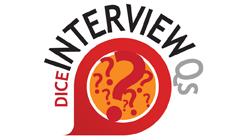One moment scrum masters are leading and mentoring team members, the next they’re reviewing code and calling for a two-week sprint. A Scrum master has to wear many hats to help a project team perform at its highest level. And while they don’t always have the bandwidth to code, design or test, those with hands-on development experience relate better to the technical members of the team, says Faizan Syed, director of service delivery for eTeam, a staffing firm based in South Plainfield, N.J. Click here to find contract Scrum master jobs. Syed looks for mastery of the role’s diverse duties when speaking with prospective contractors. When he’s interviewing, here are some of the first scrum master interview questions he asks. They’re pretty basic, but you have to get through them in order to demonstrate your real interest in the job. What are the major responsibilities of a Scrum master?
- What Most People Say: “I manage projects. Oh, you want to know if I have experience with coding, testing or leading a team. Sure, I’ve done that.”
- What You Should Say: “My primary role is to lead the project team. I provide real-time guidance and coaching, remove obstacles and balance the workload. Most of the time, I organize and lead the daily Scrum. I make sure the team understands and follows the Scrum methodology. While the developers don’t report to me, I oversee the development process, the pace and the output by organizing sprints. I also code, test and design software, and I usually interface with the product owner on a daily basis.”
- Why You Should Say It: Your having detailed knowledge of the Scrum master’s role increases a team’s chance of success. The best Scrum masters see themselves as facilitators -- not project managers. Even if they don’t have time to code, they need in-depth knowledge of the functional side to participate in technical and design meetings. This answer shows that you have good coverage of all of these bases.
Describe your role during your last project.
- What Most People Say: “I was responsible for coding, testing and leading the team. More details? Well, there were 10 people on the team and I was responsible for reviewing their code.”
- What You Should Say: “I was responsible for leading an offshore team of 10 developers. I ensured quality by reviewing their code, made sure the product was delivered on time and kept stakeholders apprised of our status, often using burn up or burn down charts. I was also responsible for writing and testing my own code.”
- Why You Should Say It: A client wants to know what you can do for them, Syed says. By describing your experience in detail, you convey the value you offer, which is key to landing contract assignments.
What’s the difference between Agile and Scrum?
- What Most People Say: “They’re both methodologies.”
- What You Should Say: “Scrum is a type of Agile approach that is used to develop software applications. It’s a framework that speeds up the development process when compared to classic Waterfall processes. Scrum’s short sprints and daily feedback make it easy to rectify mistakes, so it’s often used when the business requirements are unclear. However, Scrum’s flexible nature can lead to scope creep.”
- Why You Should Say It: Since the development methodology influences the speed and quality of the code, Scrum masters need to understand the various options and which methodology best fits based on the intended deliverables.
Now that we’ve reviewed the job description and the project scope, tell me why you’re interested in this opportunity.
- What Most People Say: “I’m looking for a new job.”
- What You Should Say: “First, I’m confident that I can help this team complete its mission, but I’m also interested in working for this company. Based on the research I've done, it’s an industry leader with a great product. I love challenging projects and this one gives me a chance to work with cutting edge technology.”
- Why You Should Say It: Being able to articulate your reasons for wanting this job in particular shows that you’ve done your homework, given some thought to the assignment and will see the project to the finish.
“You need commitment, drive and stamina to lead a project team,” Syed says. “I won’t give the assignment to someone who won’t give it their all.”



